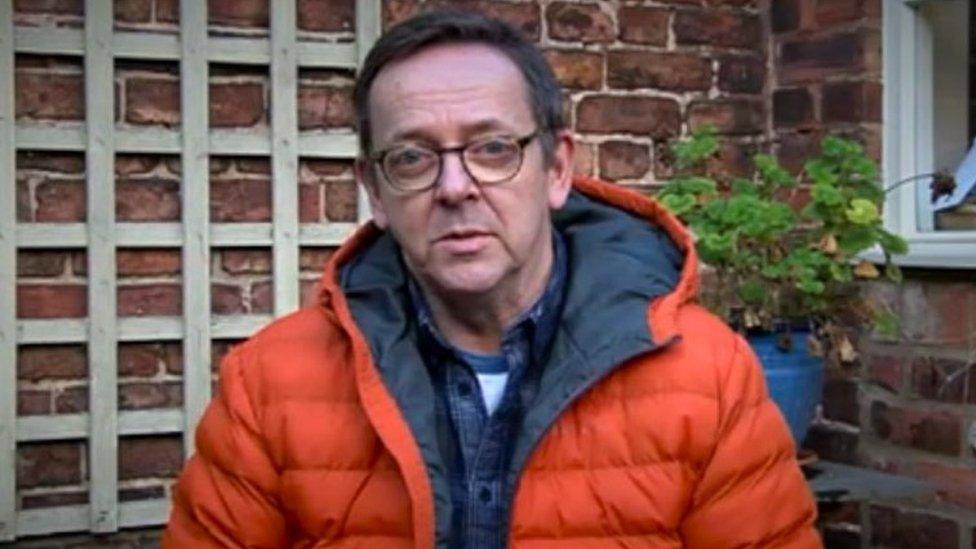Yorkshire Ambulance Service neglect contributed to man's death, coroner says
- Published
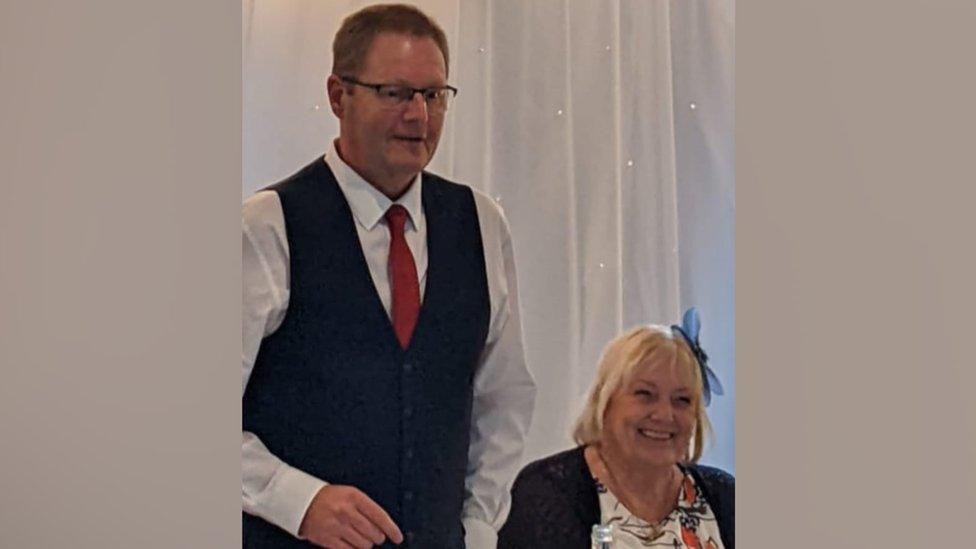
Mark Taylor, pictured with wife Carole, died after waiting nearly an hour for an ambulance
A man suffering a heart attack waited nearly an hour for an ambulance after his wife's 999 call was wrongly categorised, an inquest heard.
Paramedics should have reached Mark Taylor, 62, within about 10 minutes but instead took 58 minutes to arrive. He later died in hospital.
Coroner Natalie James said "neglect" on the part of Yorkshire Ambulance Service (YAS) had contributed to his death.
YAS said it was "deeply sorry" for the "critical error".
Mr Taylor's family, who have filed a clinical negligence claim against the ambulance service, said there had been "unacceptable" failings in his care.
The inquest in Sheffield heard Mr Taylor's wife, Carole, had called 999 at 13:09 BST on 17 October, after he began suffering chest pains and breathing difficulties at their home in Perkyn Road, Shiregreen.
Her call was not answered for four minutes and 35 seconds, despite YAS aiming to answer all 999 calls within five seconds, the inquest heard.
Mrs Taylor was then asked by a call handler if her husband was breathing, to which she replied: "Yes, just."
James Goulding, the ambulance service's clinical response and governance manager, said this should have been deemed a report of "ineffective breathing" and logged as a category one call, the most urgent classification.
This would have led to an ambulance being dispatched immediately and arriving about 10 minutes later, Mr Goulding added.
Instead, the handler wrongly logged the call as category two, placing Mr Taylor in a lengthy queue of patients.
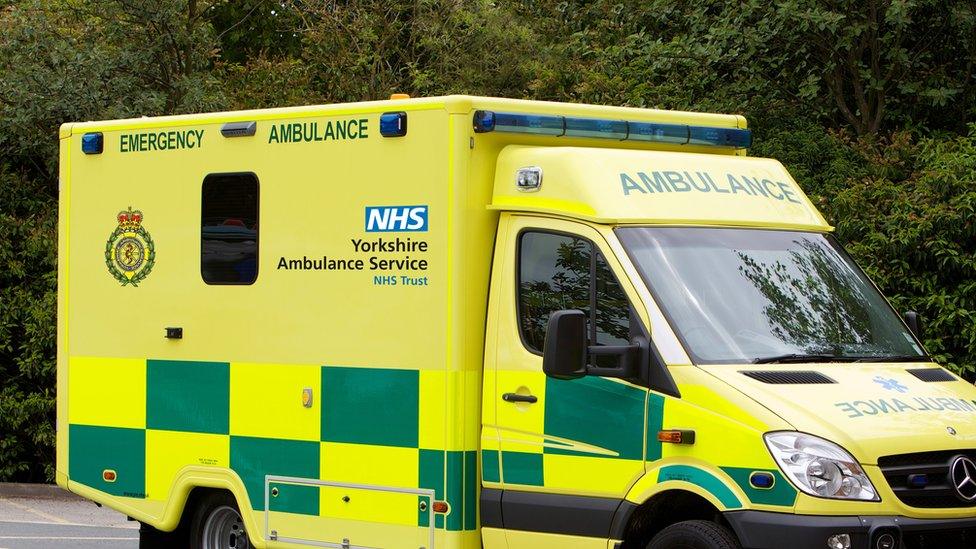
Yorkshire Ambulance Service said it was under "extreme pressure" at the time it responded to Mark Taylor's heart attack
Mr Goulding said he was "personally deeply sorry this error was made".
He added that YAS had been under "extreme pressure that day," with 175 patients - including 73 category two - waiting for an ambulance at the same time as Mr Taylor.
The hearing was told YAS upgraded Mr Taylor to category one after his "very distressed" family called 999 again at 14:00 to report he had fallen unconscious and was receiving CPR from his stepdaughter.
An ambulance and a helicopter were dispatched but Mr Taylor was in cardiac arrest by the time paramedics arrived at his house at 14:07.
He was taken to Northern General Hospital, where he went into cardiac arrest at least six more times before dying in the intensive care unit the next day. His cause of death was recorded as a heart attack and ischemic heart disease.
Dwayne Conway, an interventional cardiologist who treated Mr Taylor at the hospital, said it was "more likely than not" he would have survived if paramedics had reached him before he went into cardiac arrest.
Natalie James, assistant coroner for South Yorkshire, said the delay in responding to Mrs Taylor's call had been a "gross failure" by the ambulance service.
Recording a narrative conclusion, she said correctly categorising Mr Taylor as category one "could have prevented the cardiac arrest and therefore his death". She added: "His death was contributed to by neglect".
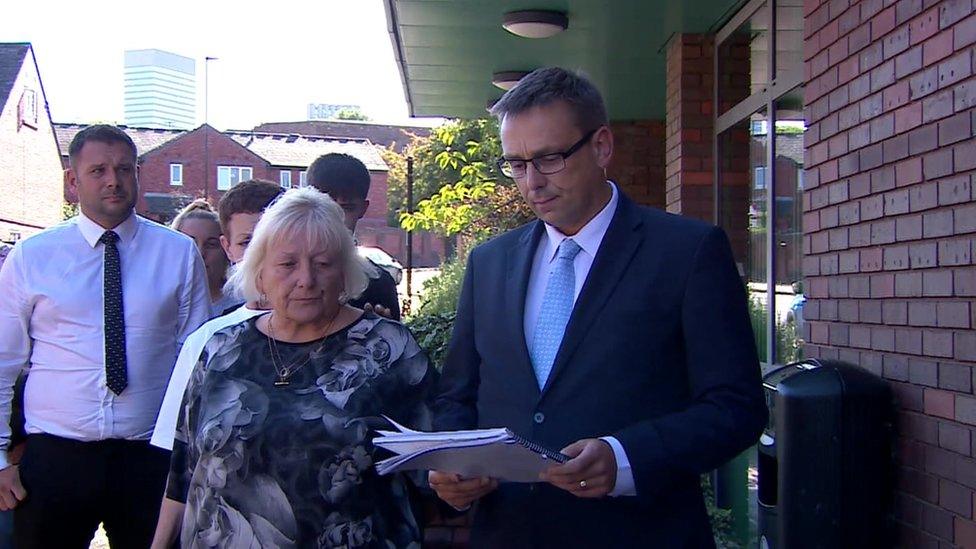
Matthew Brown of Medical Solicitors, right, read a statement on behalf of Mr Taylor's family, including his wife Carole, centre
The coroner noted the ambulance service had implanted additional staff training and new processes since Mr Taylor's death.
Mr Goulding said these had led to a 90% reduction in ineffective breathing cases being missed.
In a statement, Mr Taylor's family said the coroner's neglect finding "reflects the seriousness of the failings in Mark's care".
They added: "58 minutes is an unacceptable delay for someone suffering a heart attack.
"We have heard today that delay in answering emergency calls has been identified as a national issue which suggests that the ambulance service is inadequately resourced.
"Sadly, we have noticed an upward trend in cases where ambulance and 999 performance has lead to avoidable harm to patients and threat to life."
A spokesperson for YAS said: "The Trust contributed to the Coroner's inquest with full and frank evidence and has noted the findings.
"The Court acknowledged that individual and system learning had taken place and the Trust commits to continuing this learning and reflecting on the inquest evidence and conclusion.
"Our thoughts remain with Mark's family."

Follow BBC Yorkshire on Facebook, external, Twitter, external and Instagram, external. Send your story ideas to yorkslincs.news@bbc.co.uk, external.
Related topics
- Published9 November 2022
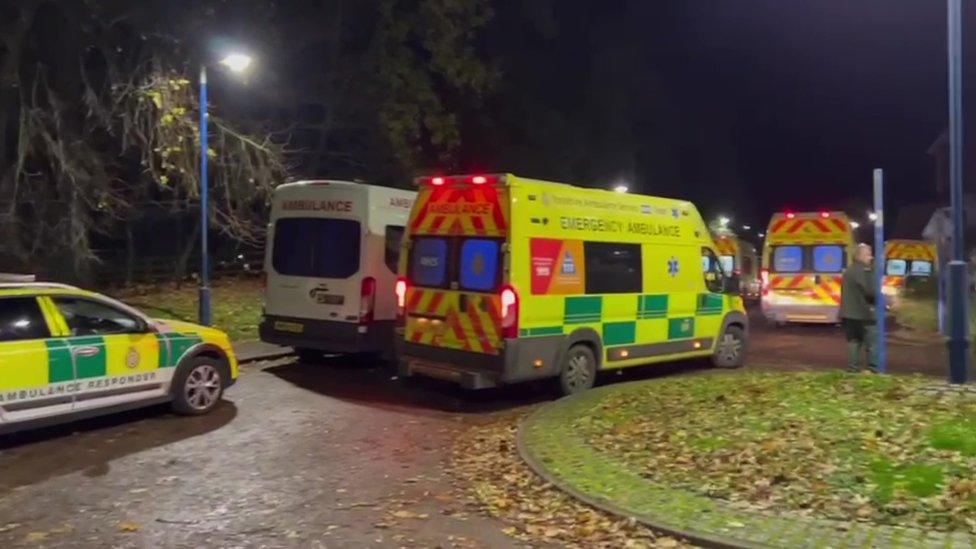
- Published16 January 2022
